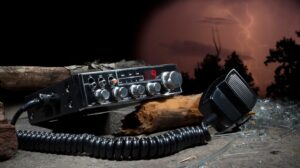The Importance of Amateur Radio Operators: A Lifeline in Times of Crisis
The Importance of Amateur Radio Operators: A Lifeline in Times of Crisis

Ham Radio Operators Restore Communication Infrastructure During Disasters
Natural Disasters
When natural disasters strike or communications infrastructure is damaged or overloaded, many forms of modern communication may break down. Amateur radio, or ham radio, can offer a lifeline in these situations, enabling communication when other technologies have failed. In this blog, we will discuss the importance of amateur radio operators in times of crisis.
During times of crisis, natural disasters, or other emergencies, amateur radio operators can be the only source of communication to isolated or remote regions. They provide emergency communication services, both within the affected area and to outside authorities, aiding the coordination of rescue and relief efforts. Amateur radio operators act as the vital link between communities and authorities, providing an essential service by delivering messages such as requests for medical help or status updates from remote areas.
Large Scale Events
In addition, amateur radio operators can help to maintain communication during large-scale events like protests or rallies, where communications infrastructure might be overloaded or disabled. Experienced operators can quickly establish communication channels, coordinate with other organizations, and share critical information.
Amateur radio operators undergo rigorous training and licensure, making their technical knowledge invaluable in emergencies. With their specialized equipment and skills, amateur radio operators can establish communication when traditional means of communication are unavailable.
Science and Research
Amateur radio operators are also valuable contributors to science and research. They support weather monitoring, tracking, research, and can offer real-time ground-level observations of natural disasters. Amateur radio operators also work with the National Oceanic and Atmospheric Administration (NOAA) and the National Aeronautic and Space Administration (NASA) to help transmit data from scientific missions to Earth.
Conclusion
In conclusion, Amateur radio operators play hugely important roles in times of crisis, emergencies, and natural disasters. Their communication skills, technical knowledge, and dedicated service are critical for preserving network security and saving lives in such scenarios. With their help, people can stay connected during emergencies, and communities can receive essential services without further delay. Hence amateur radio operators are an important asset for society. If you want to become involved click here.
When storms hit, we are some of the first volunteers to respond. Get involved today.
